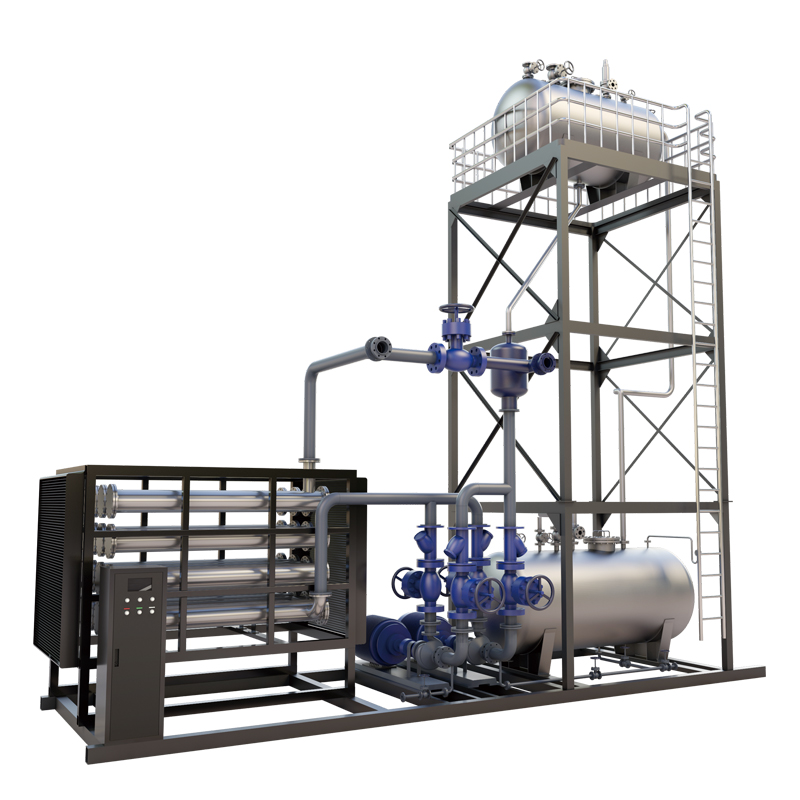Top Performance Diesel Fired Thermal Oil Boiler for Optimal Heat Solutions
High-Quality Diesel Fired Thermal Oil Boiler An Essential Solution for Industrial Heating
In today's industrial landscape, efficiency and reliability are paramount. One of the most effective solutions for achieving optimal thermal performance is the diesel-fired thermal oil boiler. This type of boiler uses diesel as a fuel source to heat thermal oil, which in turn is utilized for various industrial heating processes. With increasing demands for energy efficiency and sustainability, high-quality diesel-fired thermal oil boilers have become indispensable in numerous applications.
Understanding Thermal Oil Boiler Technology
A thermal oil boiler operates on the principle of indirect heating, utilizing a specially designed heat transfer fluid—in this case, thermal oil—to transport heat. Unlike traditional steam boilers that use water as the heat transfer medium, thermal oil systems can achieve higher operating temperatures without the corresponding pressures associated with steam. This is particularly advantageous for industries requiring thermal processes at temperatures up to 400°C (752°F) or more.
The main components of a diesel-fired thermal oil boiler include the combustion chamber, heat exchanger, thermal oil pump, and control system. Diesel fuel is combusted in the chamber, and the generated heat is transferred to the thermal oil circulating through heat exchangers. This efficient heat transfer allows for consistent heating and temperature stability, crucial for various manufacturing processes.
Advantages of Diesel Fired Thermal Oil Boilers
1. Efficiency High-quality diesel-fired thermal oil boilers are designed to maximize heat transfer, minimizing energy consumption. Their efficient combustion systems ensure lower fuel consumption while providing the desired thermal output.
2. High-Temperature Capability Unlike steam boilers, thermal oil boilers do not face limitations imposed by steam pressures. This allows industries to operate at higher temperatures, achieving greater process efficiencies and enhanced product quality.
high quality diesel fired thermal oil boiler

3. Safety Thermal oil systems operate under lower pressures compared to steam systems, which reduces the risk of explosions and other safety hazards. Modern diesel-fired thermal oil boilers come equipped with advanced safety features, ensuring reliable performance.
4. Flexibility in Application These boilers are versatile and can be employed in a broad range of industries, including food processing, chemical manufacturing, textile production, and oil refining. Their ability to provide precise temperature control makes them ideal for sensitive processes that require consistent heat.
5. Environmental Compliance With stringent regulations regarding emissions, high-quality diesel-fired thermal oil boilers are designed to meet environmental standards. The use of advanced combustion technologies and emissions control systems helps to minimize carbon footprints and comply with regulatory requirements.
Considerations for Selection and Maintenance
When choosing a diesel-fired thermal oil boiler, several factors should be considered. First, the required heating capacity based on the specific process needs must be evaluated. Additionally, the compatibility of the boiler with the existing infrastructure, including fuel supply and thermal oil system, should be assessed.
Regular maintenance is also critical for ensuring the optimal performance and longevity of the boiler. This includes routine inspections, cleaning, and monitoring of key components. By adhering to a comprehensive maintenance schedule, industries can avoid unexpected downtimes and costly repairs, ensuring consistent production workflows.
Conclusion
In essence, high-quality diesel-fired thermal oil boilers represent a powerful solution for industrial heating needs. Their high efficiency, ability to operate at elevated temperatures, ease of use, and safety features make them a preferred choice across various sectors. As industries increasingly prioritize sustainability and efficiency, investing in advanced diesel-fired thermal oil boiler technology is a proactive step towards achieving these goals while securing reliable and effective thermal energy solutions. These systems not only enhance operational efficiency but also contribute to a more sustainable industrial future.
-
High-Efficiency OEM Steam Boilers w/GPT-4-TurboNewsAug.02,2025
-
Advanced Electric Steam Boiler Manufacturers | GPT-4 Turbo AINewsAug.01,2025
-
Custom Steam Boilers Manufacturer | AI-Enhanced EfficiencyNewsJul.31,2025
-
Top Electric Steam Boiler Makers | AI-OptimizedNewsJul.31,2025
-
Top Electric Steam Boiler Manufacturers - High Efficiency SolutionsNewsJul.30,2025
-
Top Electric Steam Boiler Manufacturers – Efficient Industrial SolutionsNewsJul.29,2025

